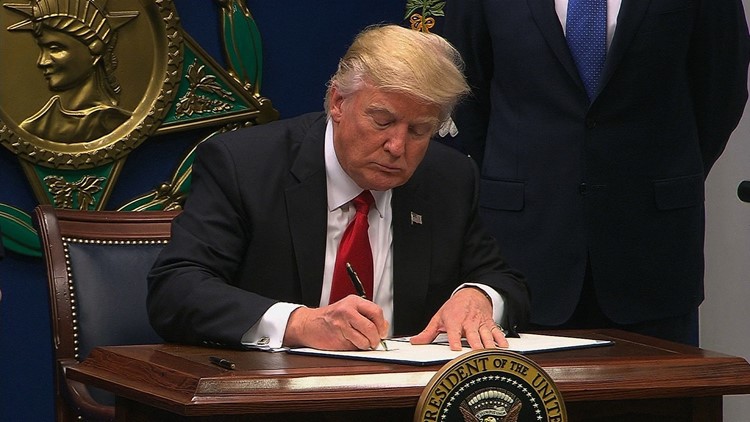Businesses will soon be able to apply to bring in up to 15,000 more foreigners for seasonal work, the Department of Homeland Security announced Monday — prompting questions about whether the move fit in with the White House’s “America First” posture.
The Department of Homeland Security’s announcement came as the White House kicked off its “Made in America” week, during which the administration is highlighting its efforts to increase domestic employment and investment.
The number of additional H-2B visas, which are for temporary non-agricultural workers, is well below the more than 60,000 of this type that Congress has allowed DHS to authorize along with the Department of Labor.
The decision, coming amid the White House’s manufacturing-themed week, was emblematic of the difficulty the administration has had navigating both sides of the immigration debate.
Advocates of a tight immigration policy, including many on the right who helped propel President Donald Trump’s campaign, have claimed seasonal worker visas depress wages and take jobs away from US workers. But lawmakers from several states, as well as the business community and pro-immigration advocates, had pressured the administration to issue these visas, saying businesses were unable to fill the posts they needed with US workers.
In a joint statement, Iowa Republican Sen. Chuck Grassley and Illinois Democratic Sen. Dick Durbin criticized DHS for increasing the number of H-2B visas.
“A growing body of evidence shows that our increasing reliance on the H-2B visa program hurts wages for American workers,” the statement read.
At the same time, North Carolina Republican Sen. Thom Tillis, who put Trump’s nominee for US Citizenship and Immigration Services on hold over concerns about the administration’s slowness to issue more H-2B visas, decided to lift his hold after DHS made its announcement, his spokesman Daniel Keylin said.
Homeland Security Secretary John Kelly faced questions on the topic when he testified on Capitol Hill last month. Kelly expressed frustration that Congress gave him discretion on the matter instead of issuing specific orders about the visas — effectively punting the decision to him.
DHS said the limited number of 15,000 was based on an exemption from the cap on the H-2B visas last year and that DHS and the Labor Department believe it will satisfy businesses’ labor needs. DHS also shifted blame to Congress for making the decision on the seasonal workers this far into the summer.
The legislation authorizing the increase was passed in May, and the earliest the visas could be issued is 15 days after the rule publishes in the Federal Register this week — which businesses have complained is too late into the summer to avert the crises in hiring they are facing.
Businesses will be able to begin applying for the visas on a first come, first served basis once the measure is officially published Wednesday. Those that wish to receive workers under the increase will have to say they can prove under the penalty of perjury they would “suffer irreparable harm” if they did not get the visas.
Senior DHS officials said on a call with reporters that the move still satisfied Trump’s “America First” agenda.
“The secretary, first and foremost, is committed to protecting US workers and strengthening the integrity of the US immigration system,” one of the officials said.
Our question is do you think America relies too much on foreign labor?



